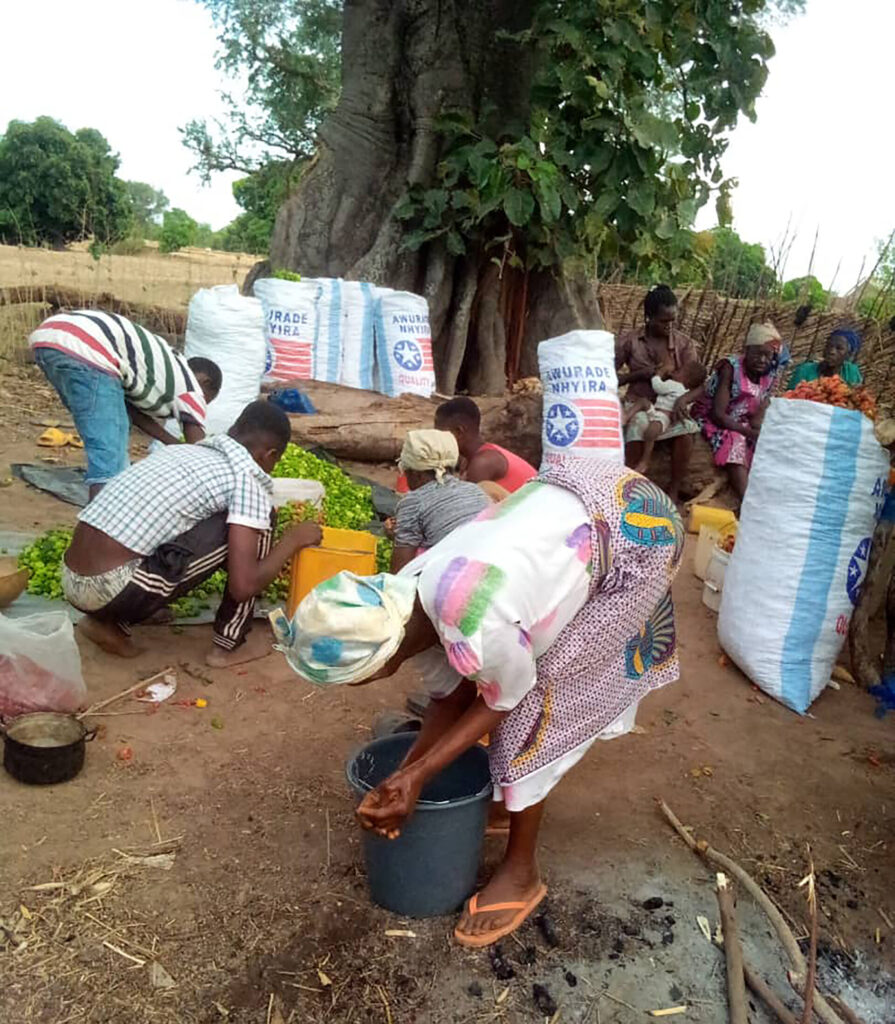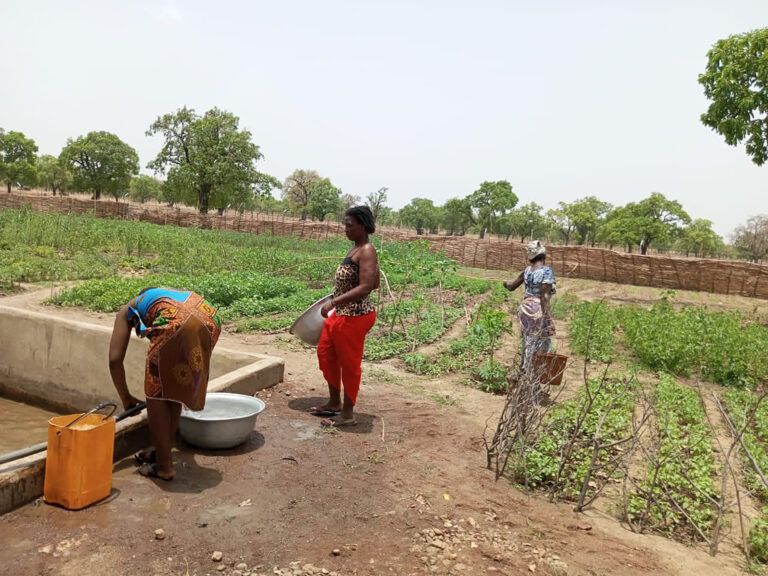Country: Ghana
SDG Region: Sub-Saharan Africa
CCE Types: Training, Public Awareness, Public Participation
In Sub-Saharan African, dry season gardening is helping re-shape gender roles in Kuliyaa, Ghana, as the rural community's women take the lead on community-driven climate solutions.
Dry Season Gardening as Climate Learning by Rural Women
Droughts and shorter rainy seasons negatively impact rural livelihoods, and rural communities in Northern Ghana have long used dry season gardening education as a climate change adaptation strategy. In response to climate changes, men from the community have begun seasonal migrations to other parts of Ghana in search of jobs.
In this patriarchal community, gardening used to be largely a male practice: men typically owned gardens while the role of women and children was largely limited to domestic chores, such as preparing food, selling garden produce, bringing fencing materials, and guarding vegetables against destruction by animals. However, with the men now gone during the dry season, the women have started engaging in dry-season gardening themselves.
This case study explores the intersection of three important lenses: climate solutions developed by the global south, rural communities, and gender.

Climate change communication and education has been dominated by western worldviews, which serves to silence voices in the global south. Although climate change is exacerbating the suffering of rural communities in developing countries, climate change adaptation led by rural communities within the African context has often gone unnoticed.
“Women in the community of Kuliyaa do not have the same access to economic opportunities as their male counterparts.”
Rather, they depend directly on the land and natural resources for survival and are more vulnerable to climate change impacts than the men in their community. The gender dimension of climate change in the Global South has not been widely investigated. This case study therefore centers gender in climate change education to explore how community-driven solutions can help address the climate challenges faced by the women in the rural community in Sub-Saharan Africa.
Using a community-based participatory research approach, this case study was conducted in deep collaboration with Kuliyaa’s Community Research Advisory Committee, which includes Female Elders who act as the community’s Knowledge Keepers, throughout the entire research endeavor. The case study was carried out by a Community Research Assistant in collaboration with 20 female and 4 male co-researchers who collected data through monthly meetings with the Committee, a workshop and focus group discussions, and one-on-one interviews with Elders and other key stakeholders.

Dry season gardening as climate change adaptation seems to be changing the traditional roles of women. Women now own gardens, and carry out gardening in addition to their domestic chores. The women have even taken up the responsibility of digging their own wells, although the water levels are extremely low due to droughts. While dry season gardening increases the burden on women, it also provides them with more economic freedom, and allows them to add to their family’s income.
The case study found that dry-season gardening is an important source of information about climate change for rural women. When new women join the community, established community members share information about climate change with them through gardening. Changes in rainfall patterns and amounts, and increases in temperature, are local environmental signals that women share with each other, which they identify as caused by climate change. The research process itself also brought women together, which helped build capacity and social connections to support them in adapting to climate change, providing an important psychosocial benefit.

The case study also illustrates important dynamics of public consultation, locally-led solutions, and rural communities’ health and wellness. The government of Ghana is rolling out programs encouraging farmers to switch from traditional crops like millet, which require a lot of water and have long maturity periods, to early maturing crops such as maize. Millet plays significant cultural roles within the community: as fencing materials for dry season gardening, as roofing materials for huts, and as fuel for cooking in households. The community has begun felling the few trees in the area to fence their gardens, which is leading to deforestation and the loss of traditional medicinal trees.
This case study shows the power of lifting the voices of the vulnerable in climate change education. The voices of rural women, their perspectives, and climate change adaptation activities are especially marginalized in international discussions about climate change. Dry-season gardening is an avenue to re-think and reshape the gender role of women, and the power of community-based participatory research in supporting gender inclusion, harness local knowledge, and improving the wellbeing of communities.

The MECCE Project is grateful researchers at the University of Education, Winneba for leading this case study


INTERACTIVE DATA PLATFORM
Our interactive data platform provides users with the ability to analyze and visualize the MECCE Project’s case studies, country profile, and global indicator data.
Learn More about the MECCE Project

DIGITAL LIBRARY
Visit our open access repository for project materials, including policy briefs, factsheets, guidelines, infographics, reports, and videos.

GLOBAL CCE BLOG
We discuss emerging issues in climate communication and education to respond to the area's rapidly evolving policy environment and public discourse.

REGIONAL HUBS
Learn how to join our growing global network, which supports regional input and action on climate communication and education.

